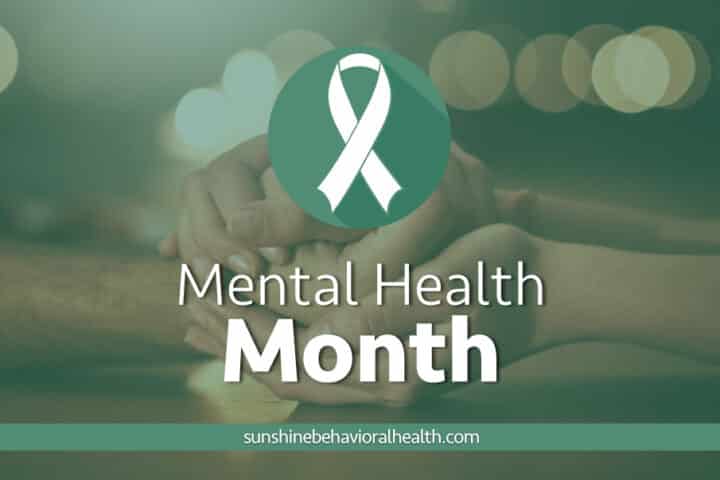
Mental Health Month
Beginning in 2020, we’ve been facing health challenges. We could be
- Taking measures to avoid contracting COVID-19.
- Trying to recuperate if we did catch it.
- Helping our loved ones avoid catching it or heal from it.
While the challenges are formidable, we’ve also faced mental health challenges. Mental Health Month can help us address them.
How has COVID-19 pandemic impacted mental health?
The COVID-19 pandemic has changed our lives in many ways. Even in good circumstances, change can be difficult. After all, we’re leaving potential comfort to something less uncertain.
Uncertainty is everywhere. People who’ve lost jobs don’t know how they’re going to pay for food, rent, or mortgages and may not know if they’ll be able to find additional work.
People might not be sure if they should send children to schools or homeschool them, or if they can homeschool them if they have work and other commitments.
They don’t know if they’ll be able to honor milestones such as graduations, weddings, funerals, or birthdays, or even when the next time they’ll be able to see their loved ones again.
It’s not surprising that such uncertainty and isolation can create anxiety and stress. People facing new occurrences and having new feelings don’t have the experience to manage things.
They might turn to alcohol or drugs because they’re using those substances to change how they feel. They’re trying to forget about their problems for a little bit.
But when the alcohol or drugs fade, the feelings might return with a vengeance. They could be dealing with stress, uncertainty, and a drug or alcohol addiction.
How can we address mental health?
There are healthier ways of addressing uncertainty, though. For example, Mental Health America’s Mental Health Month offers Tools 2 Thrive.
Tools 2 Thrive is a tool kit to improve people’s resilience and mental health. It includes practical ways to provide mental health assistance as well as suggestions on how to raise awareness of mental health issues.
People can also adapt some of these tactics in light of COVID-19 procedures, such as social distancing guidelines.
Although mental health struggles are common, Mental Health Month acknowledges that people don’t have to suffer and they definitely don’t have to stay silent about their struggles.
Sources
ncbi.nlm.nih.gov – Uncertainty and Anticipation in Anxiety
sunshinebehavioralhealth.com – Xanax Withdrawal Duration, Symptoms & Treatments
thestarr.org – Mental Health Awareness Month
A Message From Our CEO
Medical disclaimer:
Sunshine Behavioral Health strives to help people who are facing substance abuse, addiction, mental health disorders, or a combination of these conditions. It does this by providing compassionate care and evidence-based content that addresses health, treatment, and recovery.
Licensed medical professionals review material we publish on our site. The material is not a substitute for qualified medical diagnoses, treatment, or advice. It should not be used to replace the suggestions of your personal physician or other health care professionals.






